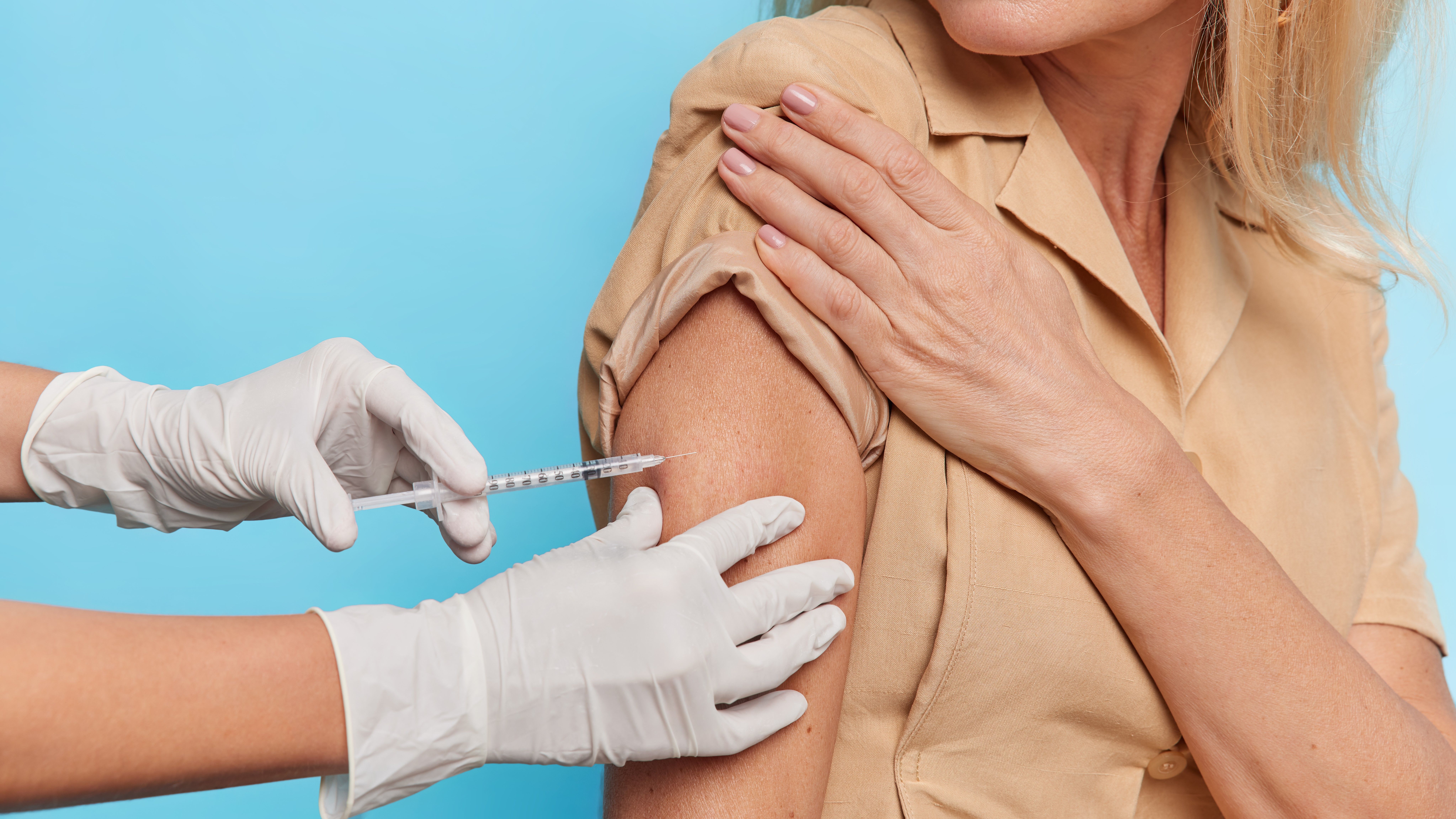General Health
Flu Vaccine: When Is The Right Time To Take It?
3 min read
By Apollo 24|7, Published on - 16 November 2022, Updated on - 27 November 2024
Share this article
0
1 like

“I get a cold and cough every year around the fall & winter seasons.” This is a common complaint doctors often get to hear from our family, friends, and sometimes from us. The monsoons lasting from June to September are India's annual flu season. There is a peak of Influenza cases during these months, with secondary peaks during the winter months, i.e., November to January. However, the good part is, the flu can be prevented with a vaccine.
All about Influenza (flu) vaccine
Influenza, commonly known as flu, is a viral infection that affects the nose, throat, and lungs. Many people suffer from flu symptoms for days to weeks, resulting in an absence from work, along with the cost of hospitalization and medicines. However, it can all be prevented by taking a flu shot.
An influenza vaccine, popularly known as a flu shot, consists of live or dead viruses that enter the body and trigger the immune system to develop antibodies against the virus. This, in turn, protects the individual from infections or common flu. It takes about 2 weeks for the antibodies to develop in the individual's body. The flu vaccine can be given to all individuals above 6 months of age.
Benefits of flu vaccine
- Protection: Protection against 4 potential types of influenza viruses.
- Hospitalisation: Averts hospitalisation due to repetitive flu episodes.
- Vulnerable population: Beneficial for the infant and elderly population who are more vulnerable to flu.
- Chronic illness: Individuals with high blood pressure, respiratory illness, heart disease, and cancer can get adequate protection.
- Pregnant women and newborn protection: Vital for pregnant women and their newborn babies in the first few months and years of life to protect them during this vulnerable phase.
When is the right time to get flu shots?
Manufacturers make the flu vaccine available every 6 months (time taken to make vaccine). Researchers have provided the following guidelines on the use of a flu vaccine:
- A flu vaccine can be taken just before or during the initial days of the start of the flu season (the last week of May or in the first few days of June).
- Individuals can take the flu vaccine all through the flu season or twice a year as per recommendations from doctors/hospitals.
- Infants and children should take two flu shots during the flu season.
- Pregnant females can take the flu shot anytime, however, it is recommended during the second and third trimesters to avoid any complications.
An influenza vaccine is a preventive measure to reduce the burden of seasonal flu cases on the community and the healthcare system. It is ideally supposed to be taken just before the flu season starts but can be taken any time of the year by vulnerable individuals under the guidance of a doctor or hospital. If you still have doubts,
Medically reviewed by Dr Sonia Bhatt.
General Health
Leave Comment
Recommended for you

General Health
Could Tonsilitis Be Causing That Sore Throat?
Tonsillitis either occurs due to infection by viruses or bacteria. Up to 70% of the cases of tonsillitis are caused by viruses that cause infections such as cold or flu.

General Health
Is it Dangerous to Wake a Sleepwalker?
Sleepwalking, or somnambulism, involves getting up and walking around while in a state of sleep. If you're wondering whether or not you should wake them up, the answer is a resounding, "No!"

General Health
Varicose Veins: When to Worry About the Bluish Veins
Varicose veins are enlarged and prominent swollen veins that mostly occur on the body's lower half, mainly on the legs and feet. They may be purple or blue, often resembling spider veins that are smaller, milder, and less bulgy than varicose veins.
Subscribe
Sign up for our free Health Library Daily Newsletter
Get doctor-approved health tips, news, and more.
Visual Stories

Plant-based Foods That Are a Great Source of Iron
Tap to continue exploring
Recommended for you

General Health
Could Tonsilitis Be Causing That Sore Throat?
Tonsillitis either occurs due to infection by viruses or bacteria. Up to 70% of the cases of tonsillitis are caused by viruses that cause infections such as cold or flu.

General Health
Is it Dangerous to Wake a Sleepwalker?
Sleepwalking, or somnambulism, involves getting up and walking around while in a state of sleep. If you're wondering whether or not you should wake them up, the answer is a resounding, "No!"

General Health
Varicose Veins: When to Worry About the Bluish Veins
Varicose veins are enlarged and prominent swollen veins that mostly occur on the body's lower half, mainly on the legs and feet. They may be purple or blue, often resembling spider veins that are smaller, milder, and less bulgy than varicose veins.